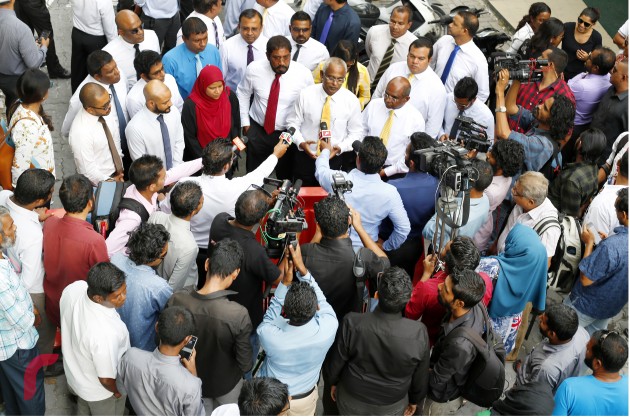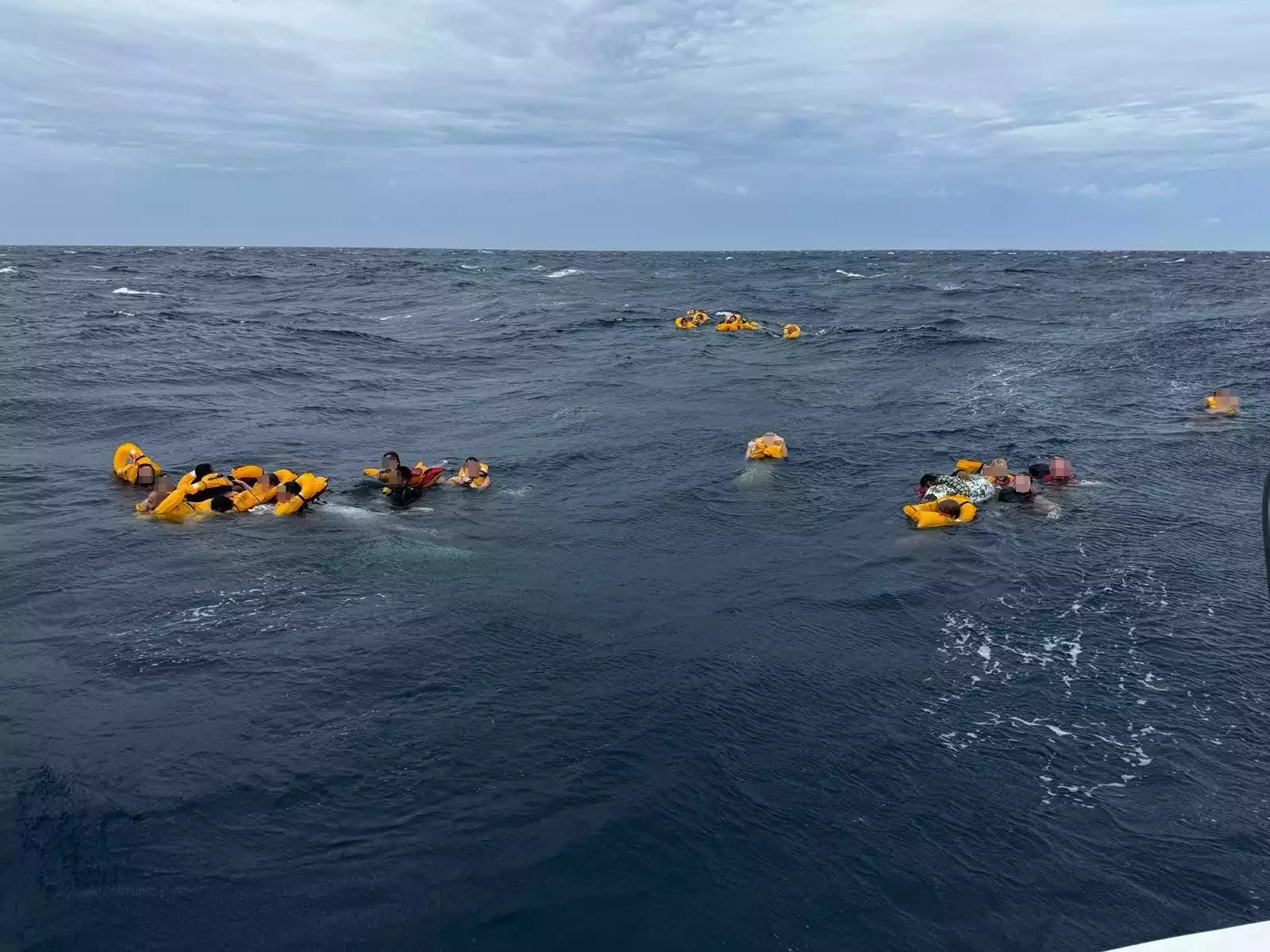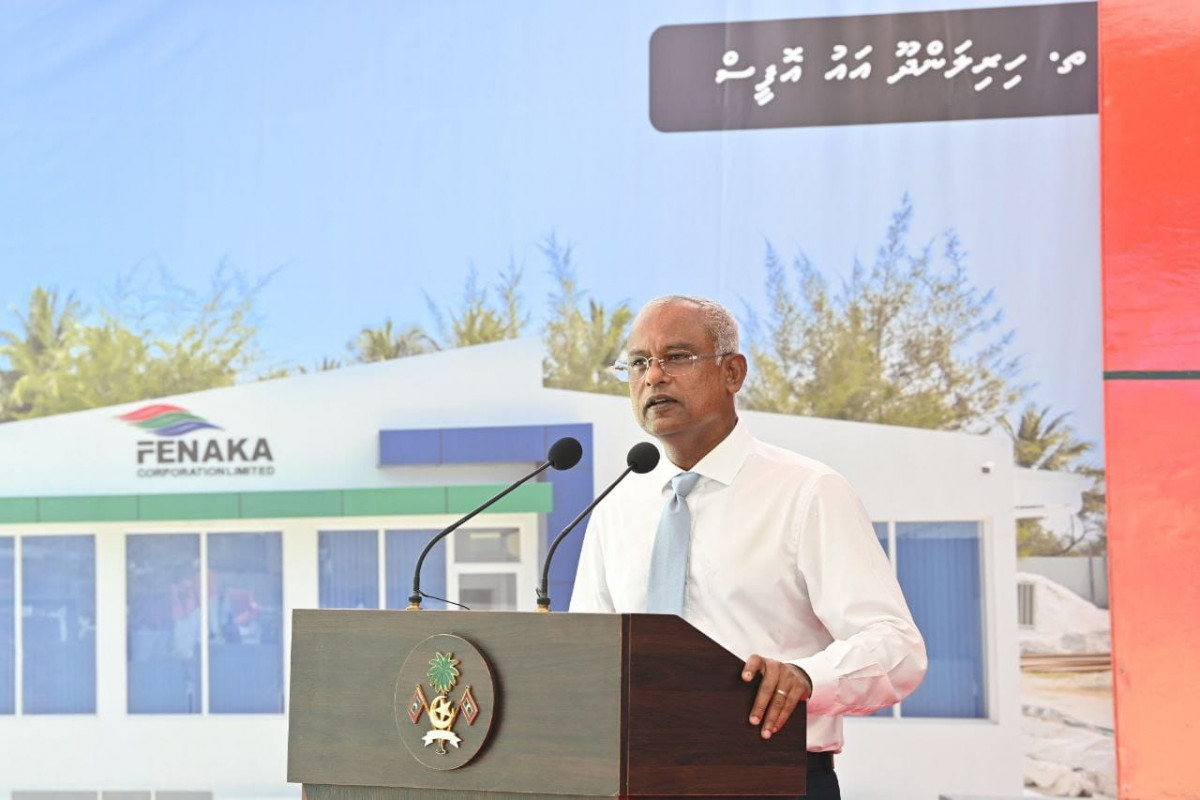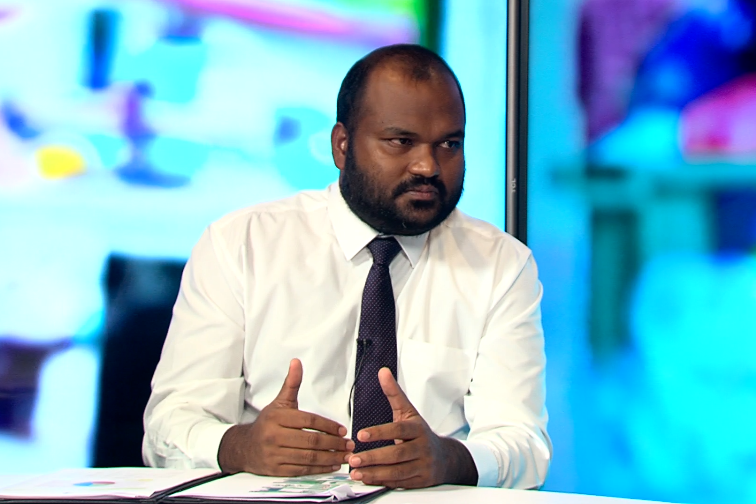Parliament will investigate vote and publicize footage: deputy speaker
Parliament would investigate allegations that lawmakers had tampered with voting panels of absent MPs, he said


The parliament blocked reporters and the public from the debate on the motion of no confidence submitted against parliamentary speaker Abdulla Maseeh
Parliament would investigate allegations that lawmakers had tampered with voting panels of absent MPs during Monday’s vote and publicize the results, deputy speaker Moosa Manik has said.
MP Manik also acknowledged, in a short talk with RaajjeMV, that neither lawmakers nor the parliament’s IT department had raised any issues regarding the electronic voting system.
Monday’s parliamentary sitting, which was broadcasted live on every station in the country, showed MP Manik – who had not been near his panel but presiding over the vote, MP Ahmed Mahloof – now serving a jail sentence, MP Ahmed Marzooq – who had not attended the sitting, to have voted.
MP Manik said that CCTV footage of the sitting would reveal the individuals responsible for it, and that they would be held accountable.
He had further said that even though there were no reported faults with the electronic voting system, the roll call vote is valid given that it had been backed by other parliamentarians.
Clauses 164 and 165 of the constitution stipulates that roll call votes can only be taken if and when the electronic voting system is proven to not be functional. Otherwise vote must be taken using the electronic voting system.
The governments of Canada, United States, United Kingdom, and the European Union along with the United Nations had criticized the method of voting implemented for the no-confidence motion against parliament speaker Abdulla Maseeh.
The Maldivian government responded to this criticism late Tuesday saying that it "is confident that international partners would respect the democratic decisions of state institutions and assured concerned parties that the vote was conducted in the most transparent manner.






